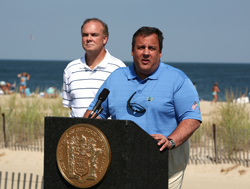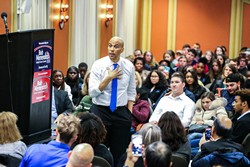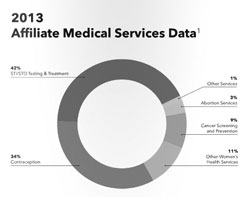NJ Governor Chris Christie vetoed bill S1772 that would ban smoking from public parks and limit smoking at beaches across NJ on Sept. 10. According to NJ.com, the bill, which had overwhelming support in both houses of the New Jersey State Legislature, proposed that violators would receive a $250 fine for a first offense, $500 for the second, and id=”mce_marker”,000 for a third offense.
According to NJ.com, the bill received a lot of admiration from environmentalists and anti-smoking advocates because they believe that it will prevent second-hand smoke, reduce liter, and prevent fires.
Dr. Laura Jannone, Chair of the Department of Nursing, said, “Passive smoking is divided into mainstream and sidestream smoke. Mainstream smoke is the smoke exhaled by the smoker. Sidestream smoke is the smoke from the burning end of a cigarette. Both cause increased cases of lung cancer, type 2 diabetes, and multiple sclerosis.”
The Environmental Protection Agency (EPA) officially declared second-hand smoke a carcinogen in 1993. Also smoker’s children are more likely to get respiratory infections. Jannone said, “It is surprising the Governor would veto this when so many communities in NJ and across the country have already banned smoking in public places.”
In an official statement made Sept. 10, one of the bill’s sponsors, State Assemblywoman, Valerie Vainieri Huttle, said, “Tobacco is the leading cause of preventable death in this country and everyone is well aware of the dangers of second-hand smoking in this day and age.”
She continued, “The damage discarded cigarettes do to our already fragile ecosystems is also well-documented. I… hoped the Governor would have joined the overwhelming majority of the legislature who supported this bill by standing up for the public’s best interests.”
Christie explained in the text of in his veto message that his reasoning for vetoing the bill was that he didn’t want a uniform ban. He said that the use of centralized powers to place restrictions on a public policy matter is outside of the scope of his governorship. He added that implementing a smoking ban is a local policy matter, and as such should be left to local officials.
For now, the bill will not be put into place. However, the vetoing processes for state governments are different than those at the federal level. Gregory Bordelon, a lecturer of political science, said, “New Jersey’s Governor, like many other state chief executives, has somewhat more latitude in how to deal with legislation presented to them by their state legislatures as opposed to the US model. The President of the United States can only veto a bill in its entirety or sign it into law.”
He continued, “At the state level, the flexibility given to the New Jersey Governor in the 1947 State Constitution allows for legislation to be enacted much more efficiently. The Governor has something analogous to the line-item veto, called the conditional veto. A conditional veto allows the Governor to strike portions of a bill, make suggestions and send it back to the state legislature. The State Legislature can then make changes based on the governor’s recommendations and send it back to him for signature.”
Thus, state governors comparatively have more power in their individual states than the President has over the Senate and House of Representatives.
This is even more apparent with governors like Christie that are on a different part of the political spectrum than their state house. Bordelon said, “The partisan divide currently in state government, however, has revealed Christie using the absolute veto power quite often. The Democratic State Senate and Assembly have never been able to get the two-thirds vote to override that veto.”
IMAGE TAKEN from newjersey.gov




